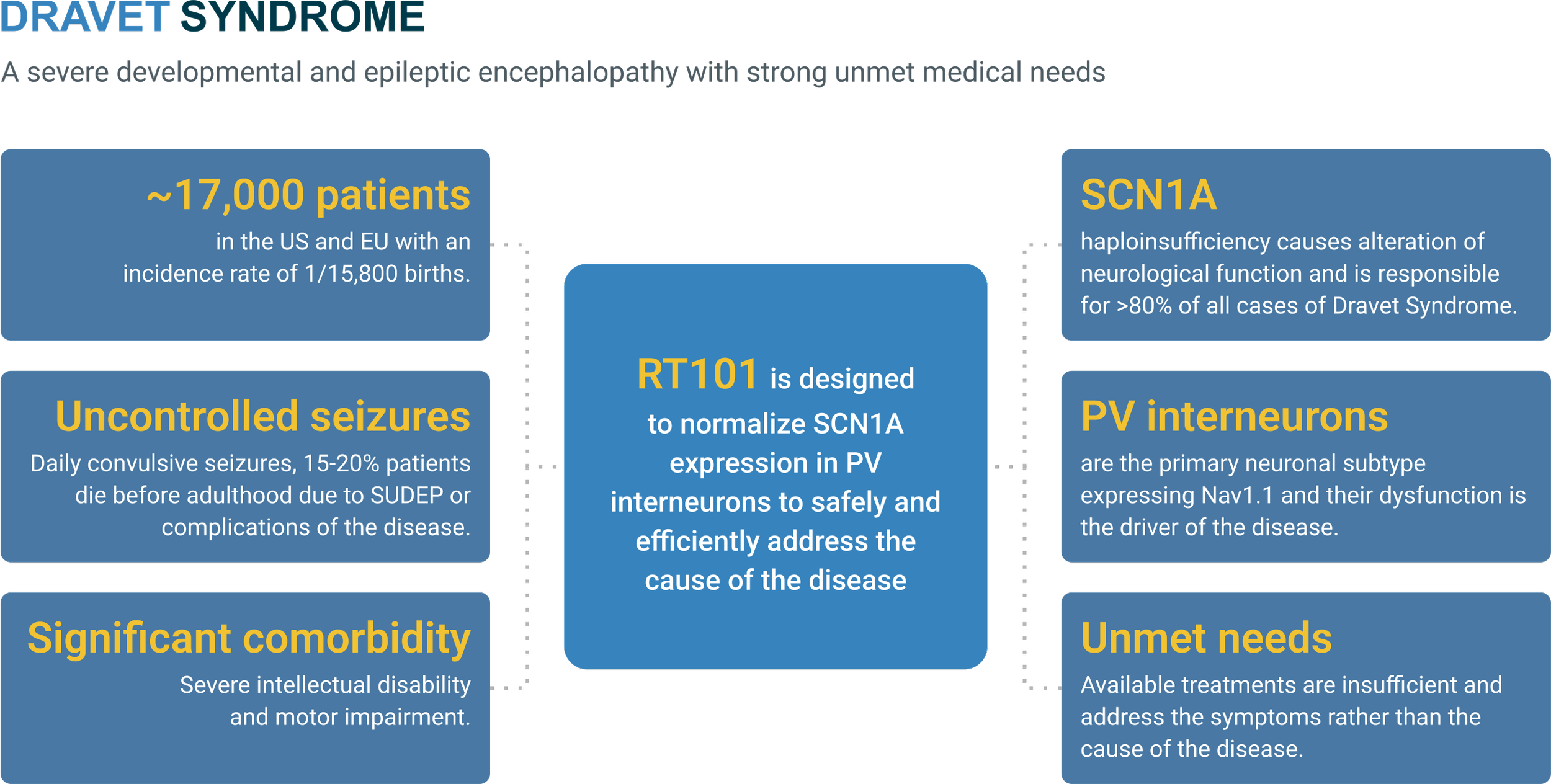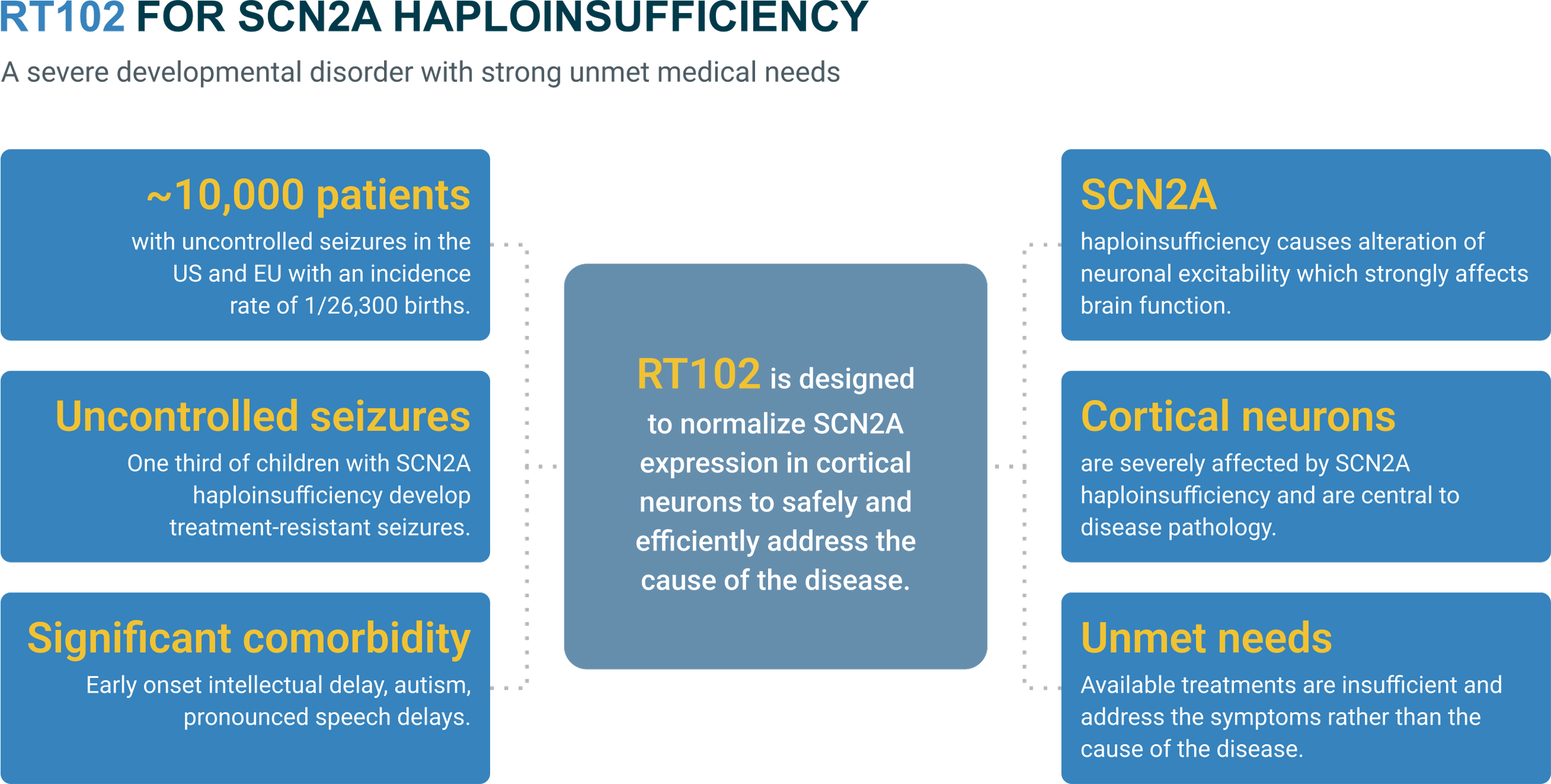The scientific foundation of Regel’s modular technology is the result of years of work by our scientific co-founders: the use of dCAS to modulate disease-gene expression was pioneered by Navneet Matharu at UCSF and the development of improved gene therapy vectors to target specific cells was led by Jordane Dimidschstein at the Broad Institute of MIT and Harvard. This body of work has been published in peer-reviewed scientific journals:
NATURE NEUROSCIENCE 2020
Viral manipulation of functionally distinct interneurons in mice, non-human primates and humans.
Vormstein-Schneider, Lin et al.
PMID: 32807948
NATURE REVIEW DRUG DISCOVERY 2020
Modulating gene regulation to treat genetic disorders
Matharu et al.
PMID: 33020616
SCIENCE 2019
CRISPR-mediated activation of a promoter or enhancer rescues obesity caused by haploinsufficiency
Matharu et al.
PMID: 30545847
NATURE NEUROSCIENCE 2016
A viral strategy for targeting and manipulating interneurons across vertebrate species
Dimidschstein et al.
PMID: 27798629



Steve Farr served as President and CEO of Zogenix from 2015 until its acquisition by UCB in 2022. He transformed Zogenix into a leading rare disease company, highlighted by the approval of FINTEPLA in the US, Europe and Japan. Dr. Farr initially served as Zogenix’s President and Chief Operating Officer since its founding in 2006. Dr. Farr is on the board of directors of Mahzi Therapeutics and he is also co-founder and CEO of Ataraxia Therapeutics. Previously, he was Sr. Vice President and Chief Scientific Officer at Aradigm Corp. He was also a board member at Tevard Biosciences and director at SteadyMed until its acquisition by United Therapeutics. From 1986 to 1995, Steve held tenured academic positions at Cardiff University, United Kingdom, concentrating in advanced drug delivery and biopharmaceutics.

Jordane is a molecular biologist and neuroscientist specializing in genomics, with over 15 years of research experience. Prior to founding Regel, Jordane was a Group Leader at the Broad Institute of MIT and Harvard, where his team developed novel approaches to de-risk the use of gene therapy vectors. His research, which now constitutes a core component of Regel’s pipeline, focused on improving the safety and efficacy of viral vectors by restricting their action exclusively to the cells affected by disease. Jordane received his Ph.D. in Neuroscience from the University of Brussels and completed his postdoctoral training in the laboratory of Dr. Gord Fishell at the NYU School of Medicine and Harvard Medical School.

Kate joined Regel in 2020 and serves as Vice President of Research. She brings expertise in neurodevelopment and genomics, with a research background spanning chromatin biology, neuronal diversity, and viral vector engineering. Prior to Regel, she conducted her graduate work in Dr. Gord Fishell’s lab at NYU, the Broad Institute, and Harvard Medical School. Her research explored how chromatin dynamics orchestrate the generation of diverse neuronal cell types in the developing brain, and applied these insights to develop cell type-specific regulatory elements for viral vectors. Dr. Allaway has a BA in Biology from Colgate University and a Ph.D. in Neuroscience & Physiology from New York University.
Michael has over 15 years of experience in healthcare investment research and asset management. He is an advisor to HBM Partners, a leading healthcare-focused investment fund. Previously, Michael was the biotech analyst for Traxis Partners, Sivik Global Healthcare and Jefferies Asset Management. Michael has also been a founder of several development stage biotech companies and presently serves on 4 company boards. Michael received a Master’s degree in Medical Science from MCP/Hahnemann School of Medicine and has worked in R&D for SmithKline Beecham Pharmaceuticals.
Dr. Andrew Schiermeier has spent over two decades as an executive in the biotech and pharmaceutical sectors, with experience from managing operations for startups to leading the strategic expansion of global brands, including Intellia Therapeutics, Merck KGaA, Aura Biosciences, and Medicine in Need. Andrew is currently the President & CEO of AvenCell Therapeutics, a clinical-stage Cambridge, MA and Dresden, Germany-based biotech that develops industry-leading CAR-T cell therapies.
Andrew holds a Ph.D. in Applied Mathematics from Harvard University, an M.S. in Biomechanical Engineering from Stanford University, a B.S. in Mechanical Engineering from Washington University in St. Louis, and an International MBA from Collège des Ingénieurs in Paris, France.
Orrin is a renowned epilepsy neurologist who directs the NYU Epilepsy Center. He has published more than 500 peer reviewed articles and written or edited more than 20 books on neurological, psychiatric, neurosurgical, cognitive, and basic science topics. He has served on the scientific advisory board for more than 12 rare genetic disorder organizations and is involved in several gene therapy/molecular biology startups. His research led to the first FDA approval of a cannabinoid and to the approval of more than 10 other medications and neuromodulatory devices.
Nadav is a Professor in the Department of Bioengineering and Therapeutic Sciences and the director of the Institute for Human Genetics at the University of California, San Francisco. He received his PhD in human genetics from Tel-Aviv University working on hereditary hearing loss. He then did his postdoc, specializing in functional genomics, in the Lawrence Berkeley National Laboratory and the DOE Joint Genome Institute in Rubin’s lab. His lab is focused on identifying gene regulatory elements and linking nucleotide variation within them to various phenotypes including drug response and human disease. In addition, his lab develops and uses massively parallel reporter assays that allow for high-throughput functional characterization of gene regulatory elements and the use of gene regulatory elements as therapeutic targets and diagnostics.
Wendy is a clinical and molecular geneticist and the Kennedy Family Professor of Pediatrics and Medicine and Director of Clinical Genetics at Columbia University. She received her B.A. in biochemistry and economics from Cornell University, her M.D. from Cornell University Medical College, and her Ph.D. from The Rockefeller University in genetics. Dr. Chung has identified over 50 genes for pulmonary hypertension, autism, neurodevelopmental disorders, and birth defects including congenital diaphragmatic hernia and congenital heart disease and has characterized the molecular defects and natural history of many of these rare genetic diseases. She leads the Precision Medicine Resource in the Irving Institute at Columbia University. She was the recipient of the Medical Achievement Award from Bonei Olam, the NY Academy of Medicine Medal for Distinguished Contributions in Biomedical Science, the Rare Impact Award from the National Organization of Rare Disorders, and is a member of the National Academy of Medicine and the American Academy of Physicians.
Kevin is an Associate Professor at UCSF in the Department of Neurology and holds an Endowed Chair in Honor of the Gallo Family. He and his lab have a long-standing interest in understanding and treating brain cells and circuits affected in neurodevelopmental and neuropsychiatric disease, with a particular focus on function and dysfunction of ion channels that mediate integration of information in the brain. He received his Ph.D. in Biology from UCSD with Dr. Daniel Feldman and his postdoctoral training with Dr. Laurence Trussell at OHSU.
Having run a laboratory for 23 years and starting the NYU Neuroscience Institute as its founding associate director, Gord moved his group to Harvard Medical school and the Broad Institute in 2017. His efforts to understand the molecular and circuit basis of inhibition have been broadly published in Nature, Science, Cell and Neuron. Presently, by combining single cell transcriptomics and systems neuroscience, his group seeks to understand both normal and patho-physiological brain function.
Navneet is a molecular biologist specialized in genetics and genomics with 18 years of research experience. She was a Principal Investigator at the Innovative Genomics Institute and Assistant Professor at UCSF. Her research focus has been on exploring regulatory elements of the genome and utilizing them as therapeutic targets for gene modulation. She has pioneered the use of non-editing CRISPR based platforms as a therapeutic modality for treating dosage sensitive diseases. Navneet is the winner of the Charles. J Epstein award for Excellence in Human Genetic Research, American Society for Human Genetics 2017. She received her Ph.D. in Molecular & Cellular Biology from the Jawaharlal Nehru University, Center for Cellular and Molecular Biology, India and completed her postdoctoral training in the laboratory of Dr. Ahituv at University of California San Francisco.